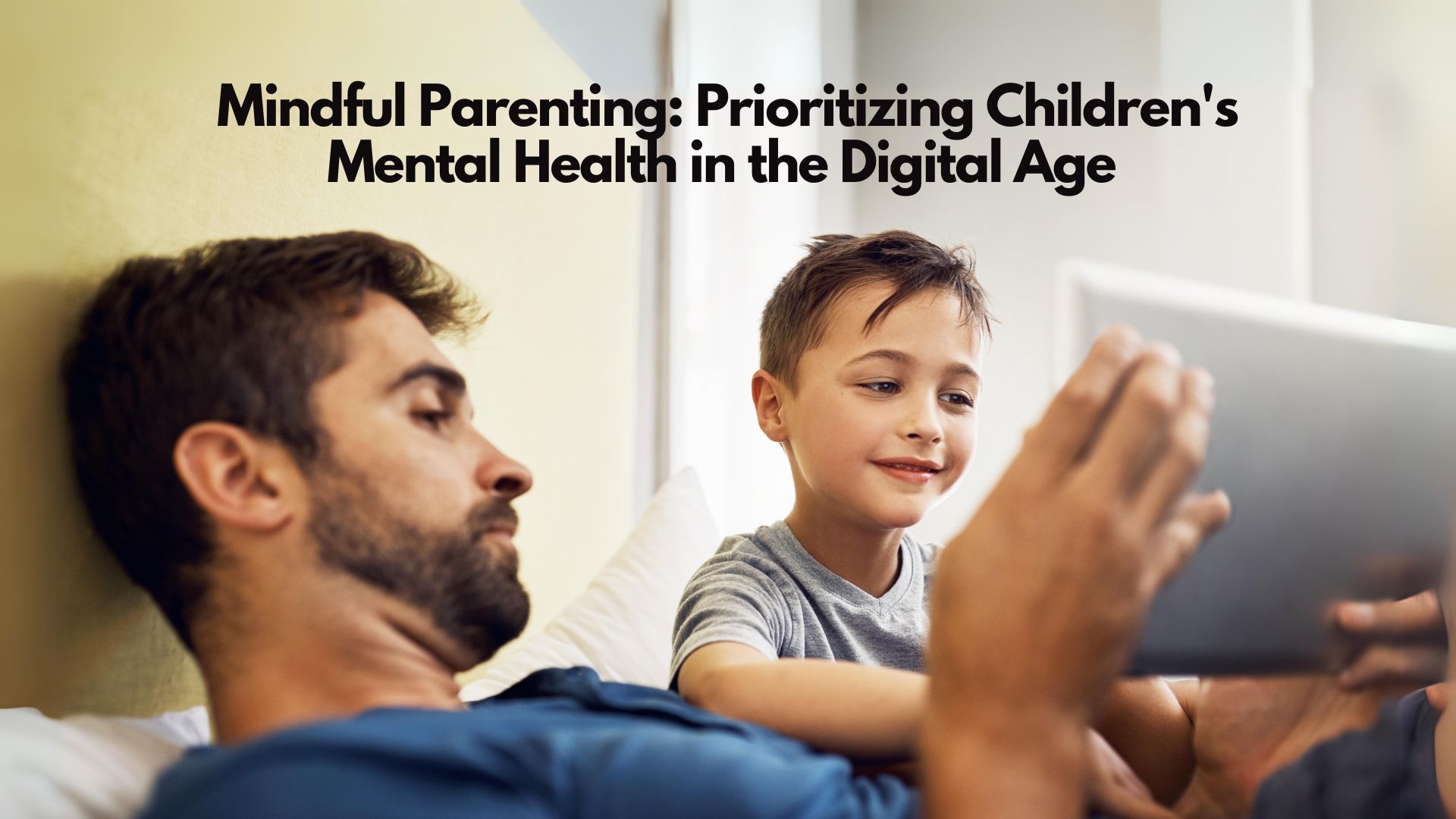Welcome to this special preview of our article, “Mindful Parenting: Prioritizing Children’s Mental Health in the Digital Age” This sneak peek offers a glimpse into the wealth of insights and tips awaiting you in the full version.
Digital devices are a fundamental part of our children’s lives more than ever before. From education to entertainment, these tools bring vast opportunities but also significant challenges, particularly to the mental health of young users. The constant connectivity can lead to issues such as social anxiety, attention deficits, and overload from an early age.
This blog aims to delve into these challenges and offer practical solutions. We will explore what it means to be a mindful parent in the digital age and how you can help protect and promote your child’s mental health. By adopting mindful parenting techniques, setting appropriate boundaries, and fostering open communication, you can help your child navigate this digital landscape in a mentally healthy way.
Understanding Children’s Mental Health
Definition and Importance
Mental health in children is about more than just the absence of mental disorders; it’s about fostering a thriving environment that nurtures their growing minds. Good mental health allows children to develop resilience against everyday stresses and to grow into well-rounded, healthy adults. Issues in these formative years often predict patterns of behavior and interaction with others in adulthood. Therefore, understanding and supporting your child’s mental health is as crucial as taking care of their physical health. This includes nurturing their ability to manage thoughts, emotions, and behaviors, to cope with life’s obstacles, and to learn productive social skills.
Common Mental Health Issues in Children
A variety of mental health issues can affect children, just as they do adults, yet symptoms in children can manifest differently, often being overlooked as normal emotional and psychological growth. Common conditions include anxiety disorders, which can cause children to be excessively fearful or worried, and depression, which may present through sadness, moodiness, and a lack of interest in activities once enjoyed.
Attention Deficit Hyperactivity Disorder (ADHD) is also prevalent, characterized by an ongoing pattern of inattention and/or hyperactivity-impulsivity that interferes with functioning or development. These issues can significantly impair a child’s daily life, influencing their academic performance, social interactions, and family relationships. Recognizing these signs early can lead to timely and effective management.
The Impact of the Digital Age on Mental Health
Challenges Posed by Digital Devices
The digital age, while bringing the world to our fingertips, also poses significant challenges for children’s mental health. Excessive screen time can lead to a variety of problems including poor sleep quality, reduced physical activity, and diminished face-to-face interactions with family and friends. This can increase feelings of isolation and stress, particularly among teenagers who are heavily influenced by social media.
Platforms such as Instagram and Snapchat often present highly curated versions of reality, which can cause children and teens to make unfavorable comparisons between themselves and what they perceive online, potentially leading to issues like low self-esteem and serious mental health disorders such as depression and anxiety.
Benefits of Digital Devices
Despite these challenges, digital devices are not all doom and gloom. When used appropriately, they can significantly enhance learning and development. Educational apps and tools can provide children with a rich database of information, fostering cognitive skills such as problem-solving, critical thinking, and creative expression.
Additionally, the ability to connect with peers through social networks can support children’s social development and provide them with essential emotional support. Thus, when managed correctly, the benefits of digital devices can outweigh the risks, assisting in children’s educational and social growth while also offering avenues for mental health support through apps designed to promote mindfulness, emotional regulation, and stress reduction.
Principles of Mindful Parenting
What is Mindful Parenting?
Mindful parenting is about being present, both physically and emotionally, with your children. It involves listening to your child’s thoughts and feelings without judgment, showing empathy, and responding appropriately to their needs. This practice not only supports the child’s emotional and psychological development but also strengthens the parent-child relationship. Being a mindful parent means navigating the fine line between guiding your children and allowing them to express their individuality. It requires parents to be aware of their own emotions and how they react in different situations, which can teach children how to handle their own emotions effectively.
Key Aspects of Mindful Parenting
Two main aspects define mindful parenting: open communication and emotional awareness. Open communication involves having honest discussions with your child about their lives, including their fears and successes. This means actively listening when they speak and encouraging them to share their thoughts and feelings.
Emotional awareness, on the other hand, refers to recognizing your emotions and those of your child’s, understanding why they are felt, and responding to them thoughtfully. By demonstrating these behaviors, parents show their children how to manage emotions, leading to better mental health outcomes. Mindful parenting helps build a foundation of trust and understanding, which enables children to confide in their parents and seek guidance when faced with their own challenges.
Preview Wrap-Up
This preview aims to prioritize children’s mental health in the digital age. To read the entire article and keep learning about making your family’s online experience safer, we encourage you to join our Cyber Safety Plus Membership Program. This comprehensive program is designed to empower parents with expertise, tools, and unwavering support in today’s dynamic digital age.
When you’re ready to secure your child’s online safety, our Cyber Safety Cop Plus membership provides:
-
Expert Guidance
-
Exclusive Articles and Practical Advice
-
A Comprehensive Online Training Library
-
Monthly Live Zoom Meetings
-
Supportive Parent Community
Embark on this journey with us now and equip yourself with the knowledge to shield your children from the ever-changing hazards of the digital realm. Explore our membership options, including both FREE and PREMIUM, each tailored to meet varying needs.
As a cherished member, you’ll enjoy complete access to this article and more.
Ready to embark on this enriching adventure with us? Become a member today and unlock this article and a treasure trove of benefits. Your child’s digital well-being and success are at the forefront, and we’re here to assist you every step of the way!






